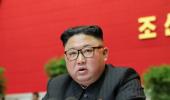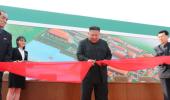Kim Jong-un declared he would never surrender North Korea's nuclear weapons weapons even if his country faced 100 years of sanctions.
Dr Rajaram Panda explains Pyongyang's new nuclear doctrine that makes the world a much more dangerous place.
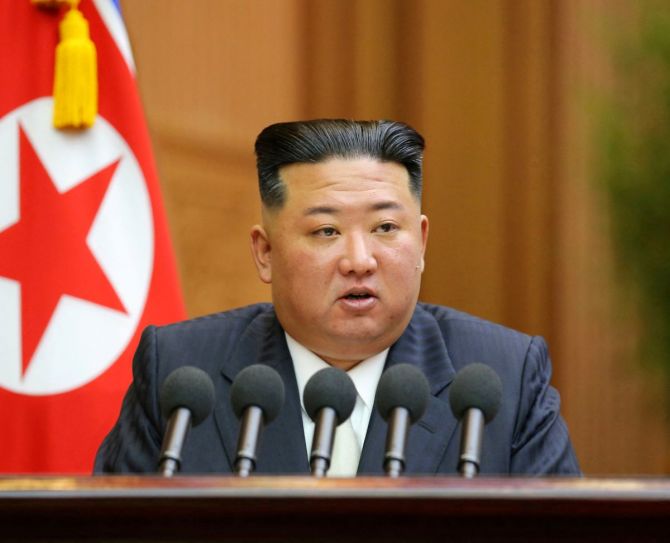
North Korea's nuclear issue is unlikely to be resolved by diplomacy, persuasion and negotiation or by any other means anytime soon after North Korea passed a new law stipulating the country's nuclear doctrine for the first time since April 2013, which significantly expands conditions that may prompt Pyongyang to launch nuclear weapons at other countries if it feels threatened.
The updated 2022 version of the doctrine spelled out by Kim Jong-un on Thursday, September 8, 2022 marks a departure from the 2013 posture document in several key areas.
North Korea's rubber-stamp parliament, the Supreme People's Assembly, passed the legislation as a replacement to a 2013 law that first outlined the country's nuclear status.
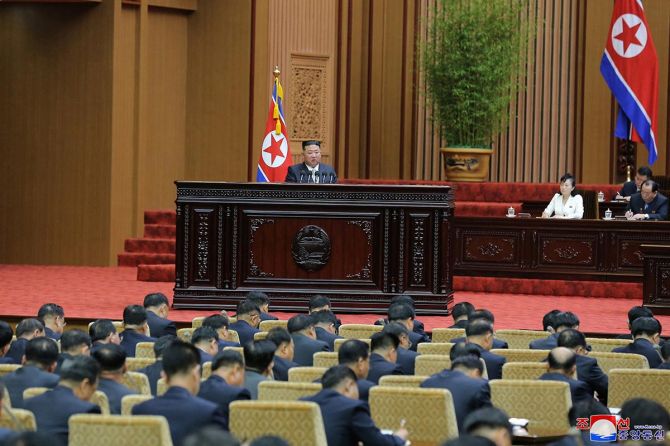
The new doctrine spells out five different use cases that could be triggered if Pyongyang thinks a nuclear or even non-nuclear' attack is 'imminent'.
This implies that North Korea reserves the right to use nukes pre-emptively, not just second-strike, but any unspecified other cases.
By enshrining the new doctrine with the right to use pre-emptive nuclear strike, Kim wants to protect his country from any enemy attack, perceived or real.
The report that makes the country's nuclear status 'irreversible' and bars denuclearisation talks put virtually a closure to any future negotiation process and talking point.
This is also a pointer that North Korea is preparing to resume nuclear testing for the first time since 2017.
The world needs to take serious note of Kim's remarks when he said, 'The utmost significance of legislating nuclear weapons policy is to draw an irretrievable line so that there can be no bargaining over our nuclear weapons.'
Kim declared he would never surrender the weapons even if the country faced 100 years of sanctions.
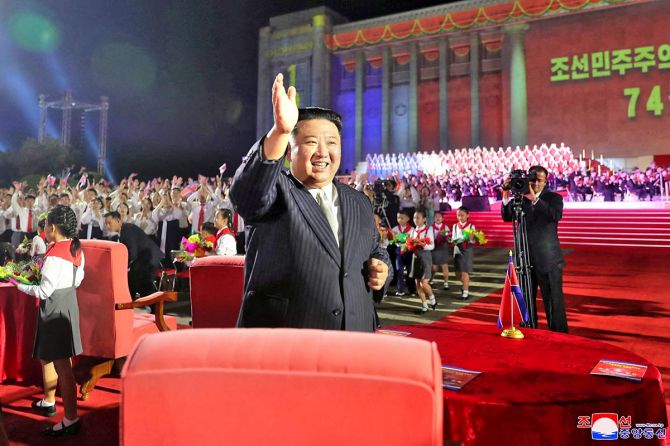
What could be the possible situation when North Korea feels threatened about its security?
The possible scenario that could trigger a nuclear attack or an imminent nuclear strike is when Kim feels his country and the existence of its people are under threat so that North Korea can gain the upper hand during a war.
Why does Pyongyang feel that the US has a hostile attitude towards North Korea when then US president Donald Trump sincerely made efforts to denuclearise the Korean Peninsula at two summits.
Karine Jean-Pierre, the White House Press Secretary in the Biden administration, has reiterated past US statements that Washington has no hostile intent toward Pyongyang and continues to seek diplomacy with North Korea.
Pyongyang defends its new nuclear doctrine as a powerful legal guarantee to consolidate North Korea's position as a nuclear weapons State and ensuring the 'transparent, consistent and standard character' of its nuclear policy.
It transpires clearly that North Korea views possession of nuclear weapons as its only means of survival.
Kim does not want to commit the mistake that Libya and Iran made in the past and therefore does not trust the US.
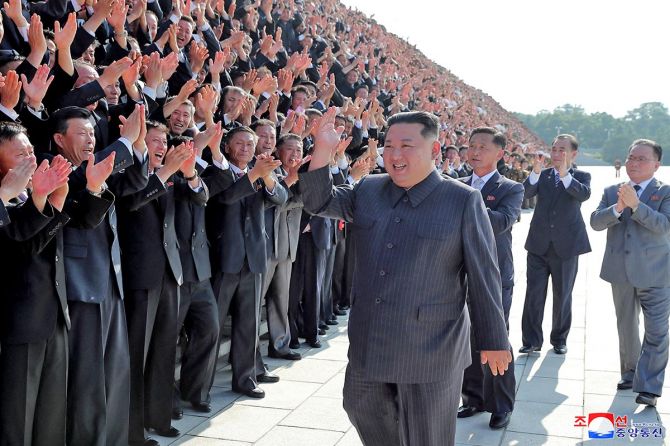
What did the 2013 law stipulate in the first place? It stipulated that North Korea could use nuclear weapons to repel an invasion or an attack from a hostile nuclear State and deploy retaliatory strikes.
The new law of September 8, 2022 goes beyond that to allow a pre-emptive nuclear strike if an imminent attack by weapons of mass destruction or against the country's 'strategic targets', including its leadership, is detected.
This means if North Korea perceived a threat in some vague and ambiguous circumstances, it can deploy its nuclear weapons.
Pyongyang's objective could be to confuse US and South Korean military planners.
The new law also makes it clear that North Korea would not threaten the non-nuclear State with nuclear weapons unless that State joins with a nuclear-armed country to attack North Korea.
But the pre-emptive strike option is what makes the new law dangerous.
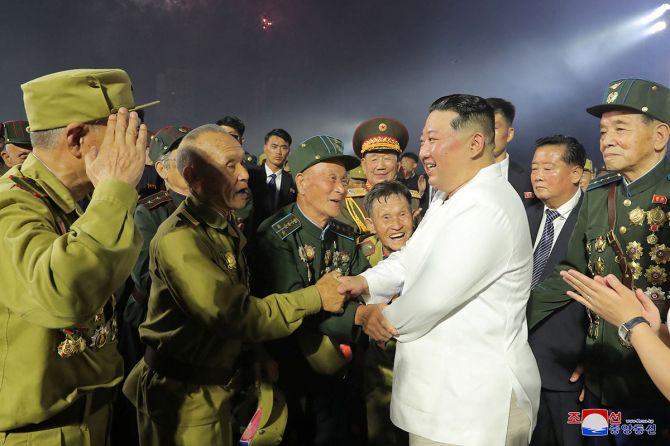
North Korea's new doctrine may be understood in the context of South Korea's 'Kill Chain' strategy, which calls for pre-emptively striking North Korea's nuclear infrastructure and command system if an imminent attack by Pyongyang is suspected.
Kim Jong-un feels the 'Kill Chain' is part of a three-pronged military strategy promoted by South Korean's new President Yoon Suk-yeol by which the plan is to pre-emptively remove the leadership in Pyongyang in the face of an imminent nuclear attack.
Since such a situation could drag the US into a conflict, Kim wanted to prepare himself for long-term tensions and therefore brought in the new doctrine which gives him 'all decisive powers' over nuclear weapons.
In a conflict situation, if Kim feels that the command and control system is threatened, he may himself decide to launch nuclear weapons 'automatically'.
However, if Kim delegates the launch authority to his commanders during a crisis, the chances of miscalculation could be catastrophic.
It is possible that Kim Jong-un came up with the new doctrine after South Korean President Yoo Suk-yeol felt that the time of appeasing North Korea has ended and therefore quickly moved to revive a 'Kill Chain' strategy toward North Korea.
On the campaign trail to be elected South Korea's president, Yoon had argued that Seoul would have no recourse but a pre-emptive strike because there was simply not enough time to intercept missiles.
Kim had responded by warning that a pre-emptive strike would only ensure Seoul was annihilated in turn. He also warned South Korea that he would use nuclear weapons should a conflict break out.
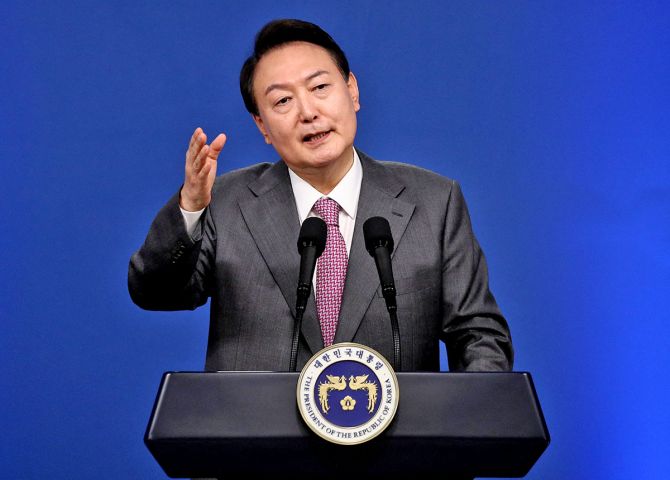
Yoon wants a summit meeting with US President Joe Biden soon to further build ties based on the extended deterrence.
Joint military exercises with the US that had been scaled back during the Trump and Moon Jae-in administrations have been restored.
Yoon also wants to reinstate the Extended Deterrence Strategy and Consultation Group with the US, which helps the two allies assess how to defend the South in the face of North Korean provocations.
Yoon also delayed the transfer of wartime Operational Control Authority from the US, claiming that preparations were not sufficient.
Though both Biden and Yoon would work for a summit meeting between Biden and Kim, both agree on a step-by-step engagement and working-level talks first.
However, if Kim comes up with another nuclear test in response to Yoon's hardening stance, any efforts to denuclearise the Korean peninsula would be a mirage.
Dr Rajaram Panda is a Senior Fellow at the Nehru Memorial Museum and Library, New Delhi.
Feature Presentation: Rajesh Alva/Rediff.com
